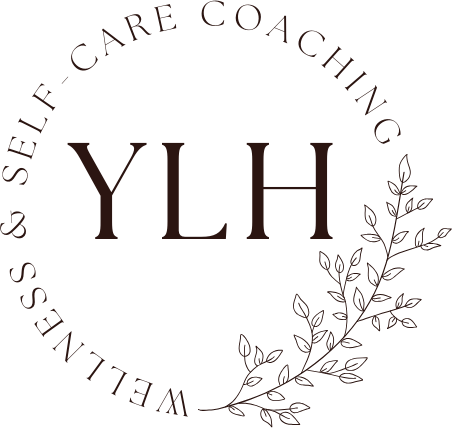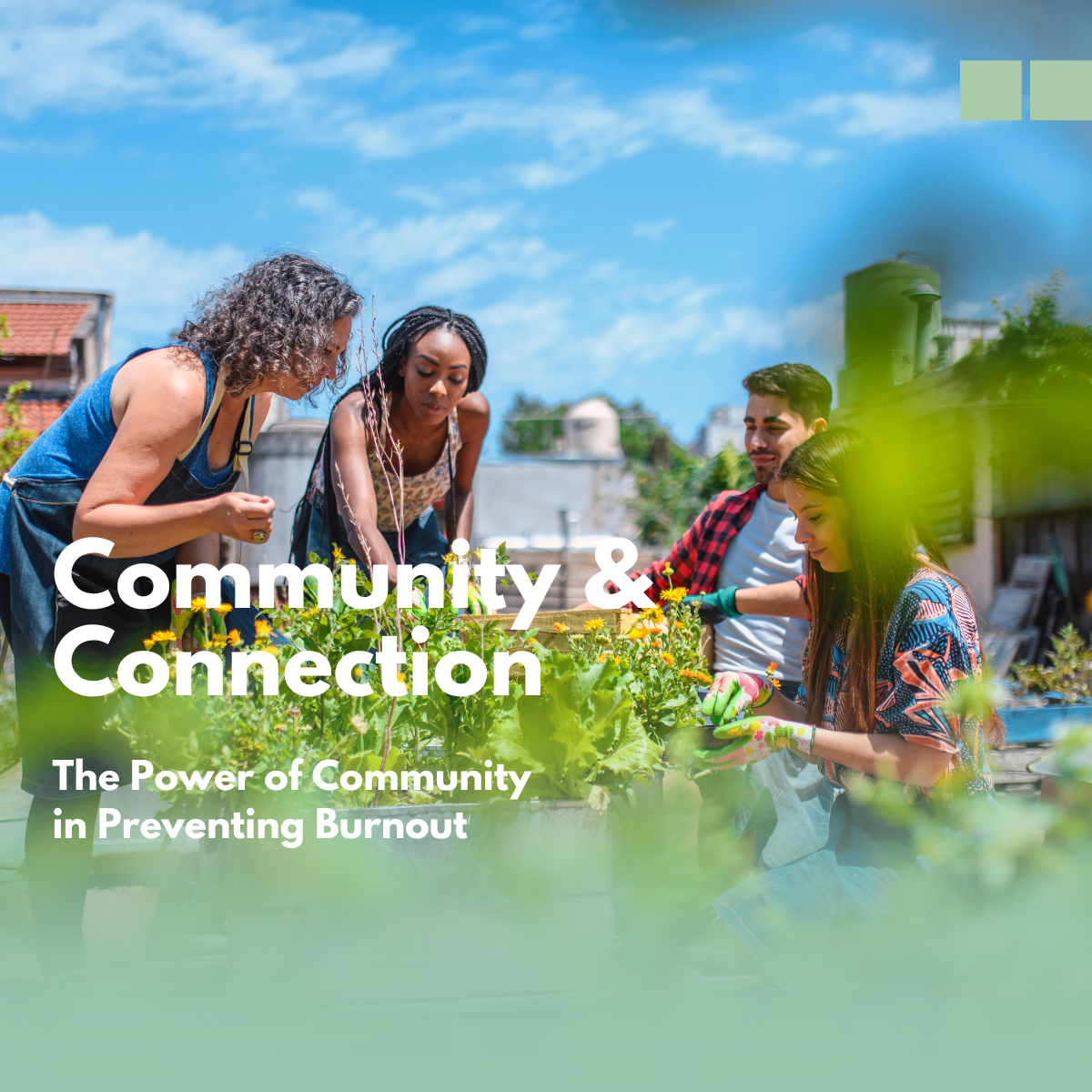The Role of Community & Connection in Burnout Recovery
Let’s be real, things move so fast these days, it’s difficult to juggle it all: work, networking, friends, and family. Taking time to build community, though will pay you back a hundred fold, and not just in finding help when you need it. Connection and belonging are basic human needs, even for the most introverted of us. When we have people around us who genuinely care, life feels a little lighter, and challenges seem more manageable. A supportive network can offer encouragement, understanding, and a sense of belonging that helps us stay resilient.
Let’s explore why connection and community matter so much, and I’ll share simple, practical steps you can take today to strengthen your relationships and grow your own sense of community.
Why Connection Matters
Humans are wired for connection. From the moment we’re born, we thrive on relationships. Science shows that strong social connections can lead to lower stress, better mental and physical health, and even a longer life.
There is a famous psychological study called the “Still face” experiment, where researchers recorded interactions between mothers and young toddlers around 2.5 yrs old. The babies made noises and were playful, as their mothers reacted with smiles, encouragement, and equal playfulness. The babies cooed.
Then, they had the mothers not react AT ALL, but keep a ‘still face,’ no matter what the baby did. At first the babies seemed confused, they tried to get their mom’s attention by being extra, they reached out with both hands, and then they got more and more visibly upset. As a parent, it’s actually pretty heart wrenching to watch.
We are wired for connection. If you have small children you know the familiar “watch me mom,” “now watch this mom” scenario as your kid jumps off the couch for the gazillionth time, but often we are too exhausted to give our attention even to the most important people in our lives.
When we feel connected to others, we gain a sense of safety and belonging. Knowing we’re not alone—even during tough times—gives us confidence to face life’s challenges. These bonds help us feel valued, regulate emotions, and maintain a positive outlook—all crucial for avoiding burnout.
Belonging as Burnout Prevention
Burnout often comes with feelings of loneliness and emotional exhaustion. When we feel part of a community, those feelings of isolation fade. Belonging reminds us that our struggles are not ours alone and that we have people who care about us who we can lean on.
Research shows that even a small circle of close relationships can create a “social cushion” against stress. Sharing experiences with others helps us realize we’re not alone, easing self-doubt and providing emotional relief. That is why support groups are so popular in treating some of the worst ailments, like addiction. Community matters.
Steps to Cultivate Connection and Belonging
If you’re looking to build more connection in your life, try these simple steps:
1. Focus on Quality Over Quantity: Deep, meaningful relationships matter more than having a large social circle. Invest in people who truly understand and support you. It’s possible to be a well-known celebrity or influencer with thousands, if not millions of followers and yet feel isolated and alone.
2. Join a Group Based on What Interests You: Whether it’s a book club, a yoga class, disc-golf meetup, or an online forum, shared interests create natural opportunities for connection. Whenever we moved, my husband scouted local disc-golf courses and joined weekly leagues. Now, he has a full community of players to go out with every single day if he wanted to.
3. Be Open and Honest: True connection comes from vulnerability. Share your feelings with trusted friends or family members and encourage them to do the same. People are less likely to feel connected to someone who seems perfect (it makes them feel bad about themselves). So let your quirky, imperfect side show.
4. Check In Regularly: A quick “How are you doing?” can go a long way in showing others you care and keeping relationships strong. If you only get superficial “Fine, how are you?” back, try something a little more personal like, “What’s been the highlight of your day so far?” or “If you could hit pause on everything right now, what would you do with the time?” Give it a try. People love people who are interested in them, by showing extra interest you are laying groundwork for friendship. The interest has to be authentic though, so don’t pretend you like football if you don’t know the difference between a Quarterback and a Receiver. Find some other shared interest.
Taking even small steps like these can help you build a supportive network and create a sense of belonging that helps you be more resilient against stress.
Beyond Connection to Creating and Nurturing a Supportive Network
Building a network of supportive friends, family, and like-minded individuals doesn’t happen overnight. It takes time, but with intentional effort, you can create a circle that uplifts and encourages you.
Here are some simple ways how:
· Identify Positive Connections: Look at your current relationships. Who makes you feel understood and energized? Spend more time with those people.
· Make New Connections: Sometimes we outgrow old networks. Look for communities aligned with your interests, volunteer groups, wellness classes, or even online spaces can be great starting points.
· Practice Active Listening: Show genuine interest in others’ thoughts and feelings. This builds trust and strengthens bonds. Listen to learn, not to answer. A trick I used in the beginning was to try to remember three things the person told me, and then repeat them back so they knew I heard them.
· Set Boundaries with Negativity: Not all relationships are helpful. Create space for positivity by limiting time with people who drain your energy. Even if they are family, it is ok to hold your boundaries. No one is entitled to your time and attention, especially those that make you feel drained (even if they are your close relative).
Keeping Your Network Strong
Once you’ve built connections, it’s important to nurture them. A supportive community thrives when everyone invests in it. Here are easy ways to maintain and grow your support system:
Ask for Support and then Show Gratitude: Almost everyone likes to feel needed. When you ask for support, you give the opportunity for someone to give. It makes them feel good about themselves. Then, a simple thank-you note or kind message can make people feel valued and deepen your connection. I’ve often been hesitant to ask, but recently leaned into my mom-friend network when work and family collided. Asking and receiving help from one another strengthened our friendships.
Plan Regular Meet-Ups: Host a coffee date, a game night, a mom’s night, or even a virtual hangout to bring people together. Most people don’t want to host but would love to attend. We spent a year hosting monthly games nights and it was a blast. We learned a ton. You can read about it here.
Be There in Tough Times: Offering support during someone’s challenges builds trust and strengthens your bond. It can be anything, from helping a neighbor when a windstorm blows down their fence or being there for a friend when they have a loved on pass away.
Check In Consistently: Reach out with a quick call or message to show you care and keep the relationship active. It’s ok to use calendar reminders to do this. When you talk to a friend, put something on your calendar for a couple weeks out just to send a text. We are all busy, you don’t have to remember it all on your own.
Do Things Together: Shared activities—like hiking, cooking, or taking a class—create fun memories that strengthen your relationships. I’ve even invited friends to go grocery shopping. Why not take something mundane and make it more fun and interesting? You might even learn about a new nutritious food you’ve never heard about.
Get started today. Small steps add up, helping you create a network of support and encouragement. Reach out, connect, and invest in the relationships that lift you up. Over time, you’ll build a supportive network that not only helps you thrive but also reminds you that you’re never alone.
Did this topic add value to you? Please like and
subscribe if you want more topics like this, or comment or DM me. I always love
suggestions and feedback!
And if you are too burned out and overwhelmed to even
begin to use any of these strategies it might be time to get some help. Find a
coach, therapist, or doctor who can help you reverse out of the physical,
mental, and emotional symptoms of burnout so you can get back to living in
healthy balance.
Remember, Self-care isn’t selfish…it’s required!
Yvonne Lee-Hawkins, IPHM, is a holistic wellness coach,
stress strategist, and writer, who spent 20 years in corporate and leadership
functions. When she is not working, she loves to go on nature adventures with
her family, in the Pacific Northwest where they call home. You can find out
more on her website,
or follow her on LinkedIn,
Medium, or Instagram.

